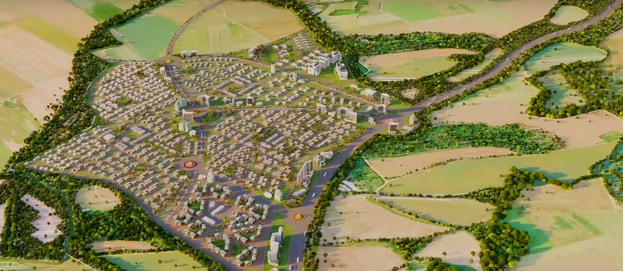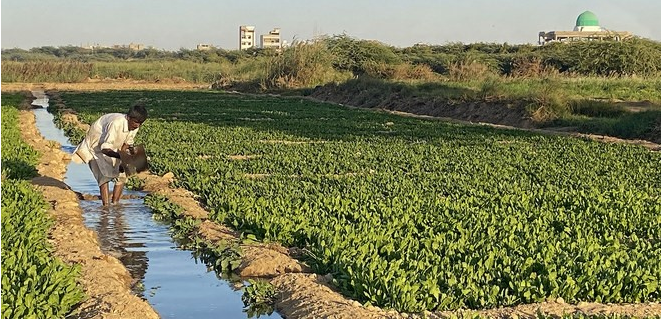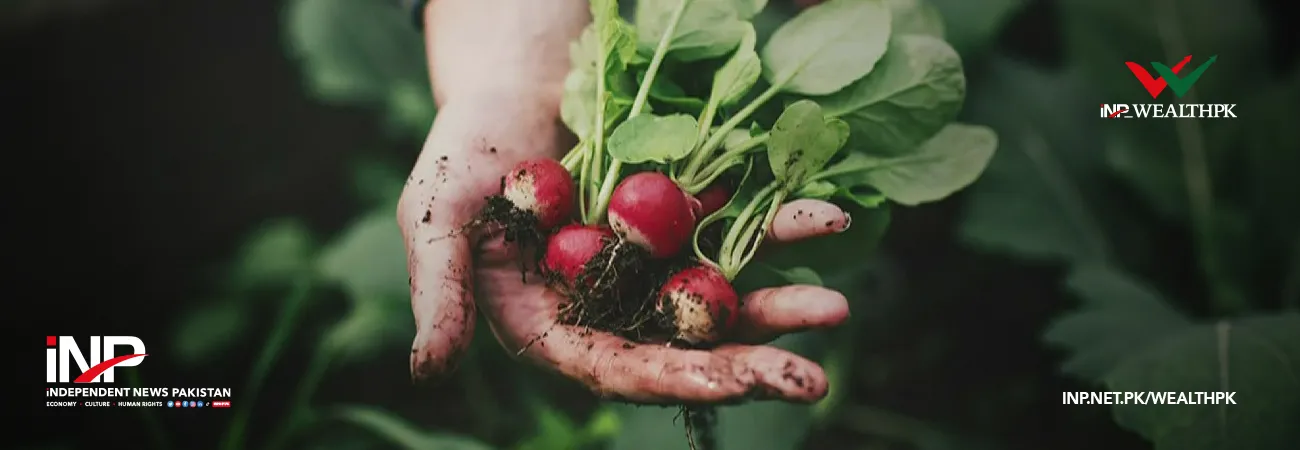i INP-WEALTHPK
Ahmed Khan Malik
While Karachi is known for its sprawling concrete jungle and commercial vibrancy, experts say the city’s suburban and peri-urban areas possess enormous untapped potential for vegetable cultivation.

The suburban areas of Karachi, including Gadap, Malir, Kathore, and Bin Qasim, have soil and climatic conditions well-suited for growing a wide variety of vegetables throughout the year.
“Karachi’s outskirts still have the right environment for vegetable cultivation,” said Dr Rafiq Soomro, an agronomist at the Sindh Agriculture University. “With proper irrigation and planning, we can easily revive large-scale farming. Even smallholders can benefit if they adopt modern water-efficient techniques like drip irrigation.”

Talking to Wealth Pakistan, he said that the proximity of these agricultural areas to the urban market provides a major logistical advantage. “Vegetables transported from rural Sindh or Punjab often lose freshness and incur high transport costs. Locally grown produce from Karachi’s suburbs could reach markets faster, reducing waste and lowering prices for consumers,” he said.
“About 30 to 40% of perishable vegetables are lost between harvest and retail because of poor logistics,” noted Soomro. “If we strengthen peri-urban farming around Karachi, we can drastically cut these losses and ensure fresher produce for city residents.”
In recent years, a few small-scale farmers in Gadap and Bin Qasim have begun experimenting with organic and hydroponic vegetable cultivation. These efforts, though limited, highlight the growing potential for sustainable urban agriculture. Organic produce, in particular, is seeing increased demand among Karachi’s middle-class consumers concerned about health and pesticide residues.
“I started cultivating lettuce, spinach, and tomatoes using hydroponic systems on two acres of leased land in Gadap,” said Muhammad Irfan, a young farmer. “The results have been impressive — our yield is high, and the produce sells quickly in local supermarkets. We just need a consistent water supply and government support.”
However, the expansion of urban agriculture faces several challenges. Unplanned housing projects, water scarcity, and lack of financial incentives are discouraging farmers from investing in vegetable cultivation. Many complain that agricultural lands are being converted into housing schemes without proper zoning policies.
According to the Sindh Agriculture Department, around 12,000 hectares of land in Karachi’s outskirts remain suitable for cultivation but are underutilised. Officials say efforts are underway to encourage small farmers through training programmes and subsidies for drip irrigation systems.
“We are planning to designate certain zones in Gadap and Malir for vegetable farming and provide technical assistance to local growers. Urban agriculture is a viable solution to food security challenges in Karachi,” said Ubaid Narai, Director of the Agriculture Department.
He said as Pakistan grapples with rising food inflation, reviving Karachi’s suburban agriculture could prove both economically and environmentally beneficial. “With coordinated policies, modern technology, and community involvement, the city can once again produce a significant share of its own vegetables.”
Credit: INP-WealthPk








